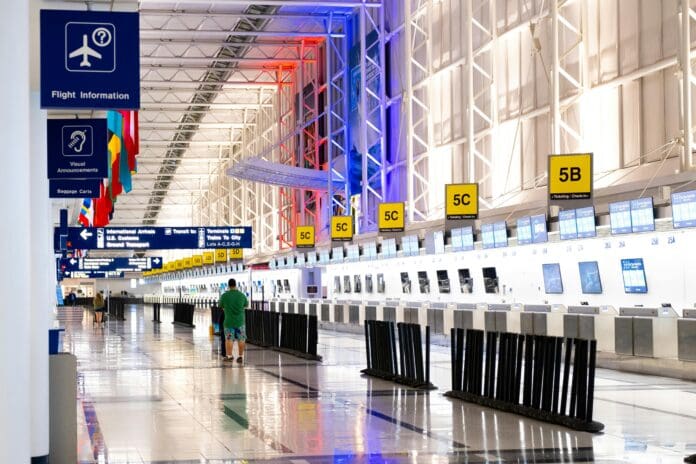This post is also available in:
 עברית (Hebrew)
עברית (Hebrew)
A cyber-related incident targeting a key check-in system provider is continuing to affect flight operations across several European airports, with Brussels Airport experiencing the most severe disruption.
The issue began late Friday (Sept 19th) when systems operated by U.S.-based Collins Aerospace suffered a cyberattack, disrupting the electronic check-in process at multiple European airports, including London Heathrow, Berlin Brandenburg, and Brussels. While some locations have resumed near-normal operations, Brussels Airport has extended flight cancellations into Monday, September 22, 2025.
The affected system supports several key functions, including passenger check-in, baggage tagging, and boarding pass printing. According to Collins Aerospace, only “select airports” in Europe were impacted, and the company is working to resolve the situation. The incident has not affected self-check-in kiosks, online check-in, or air traffic control systems.
According to AP, Brussels Airport confirmed that nearly 140 of its 276 scheduled departing flights on Monday will be cancelled due to the continuing outage. Over the weekend, 25 flights were cancelled on Saturday and 50 more on Sunday. The airport said the disruptions would continue as long as check-in desks remain dependent on manual workarounds.
Airport staff across the affected sites have implemented temporary measures such as handwritten boarding passes, alternative laptops, and backup systems to maintain as much service as possible. Brussels Airport stated that it maintained 85% of scheduled departures over the weekend thanks to increased staffing and functional self-service options.
The European Commission noted that while the disruption is significant, there is currently no evidence that air traffic control or broader aviation safety systems were affected. Investigations into the source of the cyberattack are ongoing, with no attribution yet made to specific actors or groups.
Security analysts warn that such incidents, whether caused by cybercriminals or state-linked actors, highlight vulnerabilities in airport infrastructure and the growing reliance on interconnected digital systems.
Passengers are being urged to check flight statuses in advance and use available online or self-service check-in options where possible until full service is restored.


























